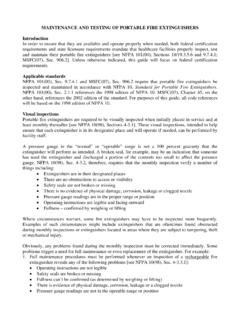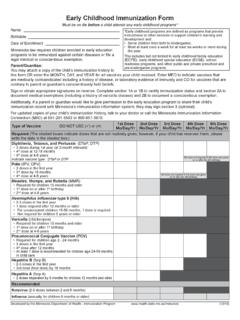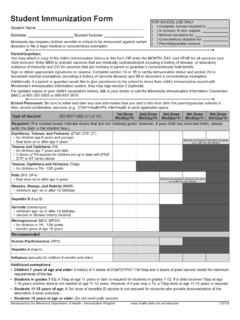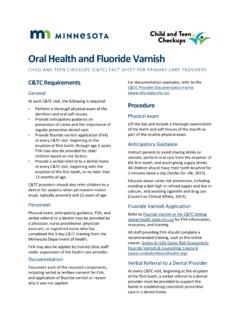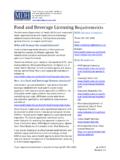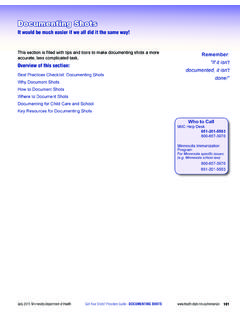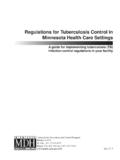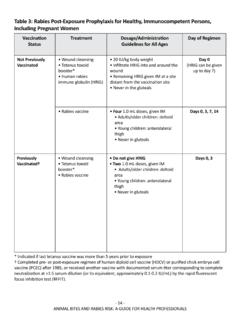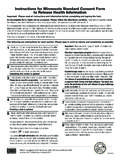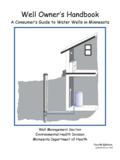Transcription of Patient Comprehensive Assessment
1 POLICY/PROCEDURE Title: Comprehensive Patient Assessment : Hospital Services Issued By: Clinical Services Policy No.: Date Issued: 4/97 Review Cycle Start Dates: 2/99, 8/99, 5/00, 3/01, 1/02, 2/03, 3/23/05 Date Approved By: Clinical Operations 8/23/99 Clinical Services Committee - Leadership - 05/15/00, 5/01 Medical Executive Committee - 2/99, 6/15/00, 7/19/01, 8/18/05 Board of Trustees - 2/99, 9/16/99, 7/27/00, 8/24/01 Board of Governors 8/24/05 Policy: Staff conducts a thorough Assessment and evaluation on all patients admitted to hospital-based services. The multidisciplinary treatment team members review, and integrate results and prioritize identified problems in the Interdisciplinary Treatment Plan. Initial assessments consider the patients immediate and emerging needs, which include physical, psychological, and social status .
2 Procedure: Needs Assessment and Referral Needs Assessment is the process of determining the treatment needs of a Patient and when appropriate coordinating a referral to Prairie or alternate provider. Refer to policy Needs Assessment and Referral. Call Center Inquiries include: Reason for referral which includes information about the Patient s current condition, including any safety concerns; Patient Comprehensive Assessment , Page 1 Patient , caller and referent information Guardian information and legal status (voluntary vs. involuntary) Current providers (mental health and primary care) information Current medications Insurance information Appropriate disposition of the call which may include: scheduled Needs Assessment ; or clinic referral or other referral in which cases Needs Assessments are not completed. Needs Assessment Interview.
3 If Patient is a walk-in, then information normally obtained during the initial call is gathered during the interview. Vital Signs including blood pressure, pulse and temperature. Precipitating Events and Presenting Problems, which includes both the Patient and family perspectives, and history of illness. Review of previous and current treatment providers. Medical information and current medications Risk Factors including suicide, homicide and elopement assessments. Symptom checklist (refer to ) Family history of psychiatric and medical illness. Alcohol and drug use. Living Arrangements. Family Stressors Abuse and trauma history Mental status Physical/Psychological complications for seclusion/restraint. Needs Assessment counselor consultation with psychiatrist as defined in Needs Assessment : Parameters for eContacting On-Call Psychiatrist.
4 NAC reviews Assessment and provides recommendation for level of care to the psychiatrist. Psychiatrist determines the recommended level of care. There are occasions when complete review is not possible, Patient uncooperative due to psychosis, Patient unresponsive. Document reasons for not including above information. Needs Assessment Update form can be used in place of the full Needs Assessment form in the following cases: Patient is transferring up a level of care or Patient is being readmitted after 7 days or less or Patient had a full Assessment within 30 days Psychiatric Evaluation / Mental status Exam The attending psychiatrist/designee completes and documents the Psychiatric Evaluation in twenty-four (24) hours for inpatient or within sixty 60 hours for partial hospitalization. Patient Comprehensive Assessment , Page 2 The Psychiatric Evaluation includes the following information: Chief Complaint and/or Reaction to Hospitalization Onset of Illness and Circumstances Leading to Admission Past Psychiatric Problems/Treatment including history of medications taken, indications, response, adverse reactions Social History Family History of psychiatric/substance abuse illness/treatment Legal/ occupatient Medical History Significant Milestones for pediatrics Drug/Alcohol Abuse History Mental status Exam.
5 General Appearance / Attitude Orientation Attention Concentration Memory Abstract Reasoning Fund of Info Intelligence Estimate Psychomotor Activity / Behavior Speech Mood/Affect Thought Process (associations, form) Thought Content (preoccupations, phobias, ideas of reference ) Perception (hallucinations, illusions, dissociation) Insight/ Judgment Impulse Control Suicide/Self-Harm Risk Violence/Homicide Risk Patient Assets / Strengths Patient Liabilities/ Weaknesses Impression/Formulation Initial Problem List and treatment Plan Precipitating event and psychological stressors; Preliminary D/C Plan Any other comments deemed appropriate at this time. Competency for voluntary admission, if appropriate. When above cannot be completed, Patient uncooperative or unknown, document as such. Complete the Admission Note form when the psychiatric evaluation is dictated.
6 This allows ready access to pertinent Patient information. When the Psychiatric Evaluation form is completed and incorporated into the medical record within 24 hours, the admission note is not necessary. Patient Comprehensive Assessment , Page 3 History and Physical (H & P) Within the first twenty-four (24) hours of the Patient 's admission, the Prairie physician or physician s assistant (PA) completes a history and physical. The H & P remains in effect for the Patient s stay through the Prairie levels of care. If a Patient is readmitted within 30 days from the date of the previous H& P, reference to the previous history with an interval note and physical exam update suffices. Record significant changes in the Patient s condition. This history includes but is not limited to: Presenting illness Family history Past medical history Review of symptoms to include review of cranial nerves I-XII Physical examination Diagnostic impression Initial plan A durable, legible copy of the H&P (if done within 30 days) is incorporated into the Patient record at the time of admission.
7 Record updates on the Assessment Update form, or in progress notes. Nursing Assessment A Registered Nurse performs a Comprehensive nursing Assessment within eight (8) hours of admission. Review the Needs Assessment and validate information with the Patient . The Nursing Assessment includes the following information: Admission/Orientation - identifying information, vital signs, weight, height, color of hair, eyes, information regarding Patient / family orientation to the hospital, disposition of personal belongings, and general appearance. RN, LPN, or BHT may obtain this data and perform these tasks. Latex screening to assess for actual or potential latex allergies. Assessment of Physical status - information regarding medical / surgical history, current medications, results of DISCUS if completed, nicotine and caffeine usage, pain and nutritional screening, fall risk Assessment , withdrawal potential, self-care deficits, and body identification.
8 Review of Needs Assessment for pertinent emotional behavioral data. Summary - Anticipated special discharge plans / instructions and other comments / summary information. Learning Needs (see Patient / Family Educational Plan ) Pain Management Cultural and religious practices that may alter care or education Emotional barriers Physical and cognitive limitations Literacy level Desire and motivation to learn Financial implications of care choices Current Illness Patient Comprehensive Assessment , Page 4 Medications and proper use of medications Community Resources Nutrition ADL s Health Maintenance Behavior Control Child / Adolescent Assessment : The Child / Adolescent Assessment is completed by a Registered Nurse on each adolescent or child who is admitted. The Assessment includes the following: Social development family, peers, school Self development - emotions, values, self Developmental History Thinking / language development - thinking, language Physical development Activities of Daily Living (BHT or LPN may collect this data) Immunizations A Registered Nurse completes a Geropsychiatric Addendum and Geriatric Functional Assessment as needed.
9 The Assessment includes the following: Fall potential Assessment Functional Level If a nursing Assessment has been completed within 30 days, incorporate a durable, legible copy into the Patient s record. Record updates on the Nursing Assessment Update form, or in progress notes. For any of the above, when required information is not available, or cannot be assessed, document as such. Psycho-Social Evaluation A Social Worker reviews the Needs Assessment , Nursing Assessment , and Psychiatric Evaluation (if available) noting any discrepancies from previous records, Patient , family, and/or significant others. Document the Psychosocial Assessment within 72 hours for inpatient or 5 days for partial hospitalization. The Assessment contains the following information: Family history and current family circumstances. This includes significant interpersonal relationships, sexual orientation, constellation of the Patient 's present family group, a history of psychological or addiction problems within the family, current drug and alcohol usage of other members of the family or household.
10 Religious background and information on current religious practice and preference. Developmental history, which includes developmental milestones and problems, medical history, and Assessment of social functioning with peers. Military service history, if applicable. Information regarding socio-economic status . Patient Comprehensive Assessment , Page 5 Educational and vocational history, including academic and vocational training, past and present attitudes towards work, past and present work performance, and interest in further education, training, and / or employment. General environment, social, and peer group influence. Legal history and, if appropriate, a discussion as to the nature and urgency of the Patient 's legal difficulty and the extent to which the Patient 's legal problems might influence his / her progress and course of treatment.
